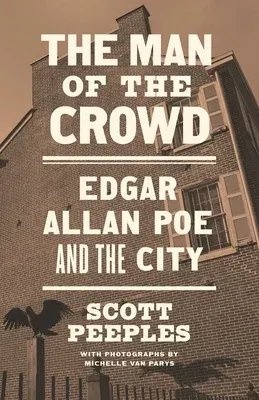How four American cities shaped Poe's life and writings
Edgar Allan Poe (1809-1849) changed residences about once a year
throughout his life. Driven by a desire for literary success and the
pressures of supporting his family, Poe sought work in American
magazines, living in the cities that produced them. Scott Peeples
chronicles Poe's rootless life in the cities, neighborhoods, and rooms
where he lived and worked, exploring how each new place left its
enduring mark on the writer and his craft.
Poe wrote short stories, poems, journalism, and editorials with urban
readers in mind. He witnessed urban slavery up close, living and working
within a few blocks of slave jails and auction houses in Richmond and
among enslaved workers in Baltimore. In Philadelphia, he saw an
expanding city struggling to contain its own violent propensities. At a
time when suburbs were just beginning to offer an alternative to crowded
city dwellings, he tried living cheaply on the then-rural Upper West
Side of Manhattan, and later in what is now the Bronx. Poe's urban
mysteries and claustrophobic tales of troubled minds and abused bodies
reflect his experiences living among the soldiers, slaves, and
immigrants of the American city.
Featuring evocative photographs by Michelle Van Parys, The Man of the
Crowd challenges the popular conception of Poe as an isolated artist
living in a world of his own imagination, detached from his physical
surroundings. The Poe who emerges here is a man whose outlook and career
were shaped by the cities where he lived, longing for a stable home.

